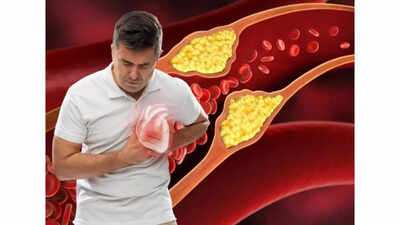ARTICLE AD BOX

Understanding Cardiovascular-Kidney-Metabolic Syndrome: The Hidden Health Risks Affecting 90% of US Adults
Think you are in the clear because you avoid “traditional” illness triggers? Think again as a new survey shows that almost nine in ten adults in the US have at least one risk factor for what is being called Cardiovascular‑Kidney‑Metabolic Syndrome (CKM), a newly defined cluster of interlinked diseases involving the heart, kidneys, metabolism and weight.
Yet most people barely know it exists. A recent 2025 comprehensive study published in PLoS Medicine highlights that nearly 90% of adults in a large cohort had at least one risk factor for CKM syndrome, which encompasses heart disease, kidney dysfunction, diabetes and obesity. The research emphasizes that the presence of multiple CKM components significantly increases risks for all-cause mortality, cardiovascular disease and end-stage kidney disease (ESKD). Specifically, each additional CKM component raises the mortality risk by approximately 22% and the cardiovascular mortality risk by 37%.
What is CKM syndrome and why should you care?
The American Heart Association formally defined CKM in October 2023, to reflect how conditions like high blood pressure, abnormal cholesterol, excess weight, diabetes and reduced kidney function don’t act alone but they team up, escalate risk and accelerate decline. Here’s how they break it down:
- Stage 0: No risk factors
- Stage 1: Excess body fat
- Stage 2: Diabetes, high BP or kidney disease
- Stage 3: Heart disease risk or silent heart disease
- Stage 4: Heart disease with symptoms + other metabolic/kidney risks
Why lifestyle has unexpected consequences
What makes CKM so dangerous is the interplay of factors. It is not just that each of high blood pressure or excess weight carries risk but that together they amplify it.
The AHA warns, “The interplay of these risk factors increases the risk for heart attack, stroke and heart failure more than any one of them alone.” In lifestyle terms, it means that skipping vegetables, staying sedentary, managing stress poorly, neglecting sleep or ignoring early signs of kidney strain can all tip you into this syndrome even if each habit alone seems small.Dr Eduardo Sanchez from the AHA highlights that most Americans are unaware of CKM but acknowledge the importance of holistic health management strategies, which integrate heart, kidney and metabolic health.
The hidden lifestyle signals
Carrying extra weight around the middle? That is Stage 1 territory. Elevated blood pressure, odd cholesterol numbers or pre-diabetic blood sugar? You may already be in Stage 2. Kidney strain often shows late but diminished kidney function is a critical piece of CKM. The syndrome is not just about “old people” either, younger adults show rising metabolic/kidney risk rates.
- Obesity/excess body-fat/abdominal fat - According to a 2023 study published by Cardiovascular Diabetology, obesity and insulin resistance are central to the CKM cascade as they trigger inflammation and metabolic dysfunction that affect heart and kidney health.
- High blood pressure, high cholesterol and dyslipidemia - As per a 2023 study in AHA Journals, the confluence of metabolic risk factors and chronic kidney disease is strongly linked to risk for adverse cardiovascular and kidney outcomes. Traditional cardiovascular risk factors (BP, lipids) are also intimately tied to kidney dysfunction and all feed into CKM.
- Chronic kidney disease/reduced kidney-function - A 2024 study, An overview of cardiovascular-kidney-metabolic syndrome, found that the risk factors include chronic inflammatory conditions, family history of diabetes or kidney disease along with mental-health and sleep disorders. CKD isn’t only a consequence, it’s a core component of CKM, interacting bidirectionally with metabolic and cardiovascular risks.
- Social determinants of health (income, food security, employment) - A 2024 JAMA study, Prevalence of Cardiovascular-Kidney-Metabolic Syndrome Stages in US Adults, established that disparities in the prevalence of CKM stages by SDOH were observed in US adults but your risk is not just biological — where you live, your access to food, job status and income matter a lot.
Symptoms and why early action matters
CKM does not always announce itself loudly hence, many people are in early stages without realising. However, complications include:
- Heart failure, heart attack, arrhythmia
- Stroke
- Progression to end-stage kidney disease
A 2024 study in ScienceDirect pointed out that despite many gaps in understanding CKM syndrome, the interconnection among obesity, diabetes, CKD and CVD is critical.
The paper emphasized that because the conditions overlap, early detection is key while delay means multiple organs are affected and treatments become harder.
What you can do right now
Research indicates that early detection and lifestyle modifications such as improved diet and physical activity are crucial in managing CKM risk factors. The evolution of treatment, including new medications that target multiple conditions simultaneously (e.g.,
SGLT2 inhibitors), offers hope for more integrated management approaches in future healthcare.
- Move your body regularly - A recent 2025 Abbott study suggested staying active by taking regular walks as physical activity helps regulate weight, blood pressure, glucose and kidney load — all key to preventing CKM.
- Eat a whole-food diet (e.g., Mediterranean, DASH) - As per the same Abbott source, researchers noted that nutrient-dense diets reduce metabolic load and protect heart and kidney health. So eat more vegetables, fruits, whole grains and lean proteins.
- Manage weight and abdominal fat - A 2023 Cardiovascular Diabetology review asserted that obesity is the central driver in this constellation of risk factors. Reducing waist size and body fat addresses a root driver of CKM
- Control blood pressure, glucose and lipids - As per AHA advisory, metabolic risk factors and chronic kidney disease are strongly linked to risk for adverse outcomes. These measurable markers are critical to stop the progression of CKM
- Ensure good sleep, address stress and inflammation - The December 2024 AJMC overview highlighted that risk factors include mental health and sleep disorders and that beyond diet and exercise, mental-health and restorative sleep are part of the equation.
- Routine screenings - A recent 2025 study in Frontiers in Cardiovascular Medicine stressed that routine assessments allow GPs to early detection of asymptomatic CKM indicators. Regular checks (BP, creatinine, HbA1c, albumin-creatinine ratio) help catch issues before they escalate.
Why this matters for everyday life
Most health conversations focus on one disease: “You’re at risk for diabetes” or “Your heart needs monitoring.” CKM flips that narrative and it says that we are all interconnected and early brain-fog, fatigue, swollen ankles or even odd sleep patterns could hint at more than one isolated issue. The lifestyle choices you make now create resilience or vulnerability across systems of heart, kidney, metabolism.In a world where we absorb headlines about “cancer risk” or “pandemic concerns”, this silent, pervasive syndrome deserves attention. Knowing that nearly nine-in-ten adults might be at risk transforms the conversation from “Will it happen?” to “What am I going to do about it?” Let this be your wake-up call, not to panic but to act because when you treat your body as one ecosystem (not isolated parts), your lifestyle becomes prevention instead of reaction.

 8 hours ago
5
8 hours ago
5









 English (US) ·
English (US) ·